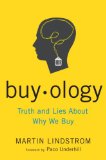“Self-overhearing”
November 8, 2008
“Self awareness and Obama,” a recent blog post at The Frontal Cortex, mentions the notion of “self-overhearing” (aka metacognition), citing Philip Tetlock of UC Berkeley. I looked for more information about self-overhearing, which comes from Tetlock’s Expert Political Judgment: How Good Is It? How Can We Know? 
Paul Monk in “Foxes, Hedgehogs, and Algorithms” discusses Tetlock’s book and traces “self-overhearing” back to Harold Bloom’s Shakespeare: The Invention of the Human.

Monk provides this quote from Tetlock as a further guide to what he means by ‘self-overhearing’ (which may not be the same idea as Bloom intended):
“Good judgment, then, is a precarious balancing act…Executing this balancing act requires cognitive skills of a high order: the capacity to monitor our own thought processes and to strike a reflective equilibrium faithful to our conceptions of the norms of intellectual fair play. We need to cultivate the art of self-overhearing, to learn how to eavesdrop on the mental conversations we have with ourselves as we struggle to strike the right balance between preserving our existing worldview and rethinking core assumptions. This is no easy art to master. If we listen carefully to ourselves, we will often not like what we hear. And we will often be tempted to laugh off the exercise as introspective navel-gazing, as an infinite regress of homunculi spying on each other…all the way down.”





